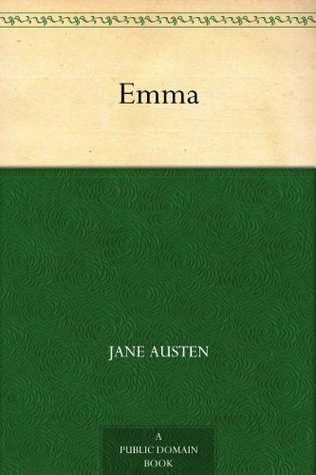More on this book
Community
Kindle Notes & Highlights
"And have you never known the pleasure and triumph of a lucky guess?—I pity you.—I thought you cleverer—for, depend upon it a lucky guess is never merely luck. There is always some talent in it.
Mr. Knightley, I shall not allow you to be a fair judge in this case. You are so much used to live alone, that you do not know the value of a companion; and, perhaps no man can be a good judge of the comfort a woman feels in the society of one of her own sex, after being used to it all her life.
Vanity working on a weak head, produces every sort of mischief. Nothing so easy as for a young lady to raise her expectations too high.
"Robert Martin has no great loss—if he can but think so; and I hope it will not be long before he does. Your views for Harriet are best known to yourself; but as you make no secret of your love of match-making, it is fair to suppose that views, and plans, and projects you have;—and as a friend I shall just hint to you that if Elton is the man, I think it will be all labour in vain."
"I have none of the usual inducements of women to marry. Were I to fall in love, indeed, it would be a different thing! but I never have been in love; it is not my way, or my nature; and I do not think I ever shall. And, without love, I am sure I should be a fool to change such a situation as mine.
Fortune I do not want; employment I do not want;
consequence I do not want: I believe few married women are half as much mistress of their husband's house as I am of Hartfield; and never, never could I expect to be so truly beloved and important; so always first a...
This highlight has been truncated due to consecutive passage length restrictions.
With such sensations, Mr. Elton's civilities were dreadfully ill-timed; but she had the comfort of appearing very polite, while feeling very cross—and of thinking that the rest of the visit could not possibly pass without bringing forward the same information again, or the substance of it, from the open-hearted Mr. Weston.—So
"He ought to come," said Emma. "If he could stay only a couple of days, he ought to come; and one can hardly conceive a young man's not having it in his power to do as much as that. A young woman, if she fall into bad hands, may be teased, and kept at a distance from those she wants to be with; but one cannot comprehend a young man's being under such restraint, as not to be able to spend a week with his father, if he likes it."
It was foolish, it was wrong, to take so active a part in bringing any two people together. It was adventuring too far, assuming too much, making light of what ought to be serious, a trick of what ought to be simple.
which poor Isabella, passing her life with those she doated on, full of their merits, blind to their faults, and always innocently busy, might have been a model of right feminine happiness.
It was rather too late in the day to set about being simple-minded and ignorant; but she left her with every previous resolution confirmed of being humble and discreet, and repressing imagination all the rest of her life.
"There is one thing, Emma, which a man can always do, if he chuses, and that is, his duty; not by manoeuvring and finessing, but by vigour and resolution.
Mr. Knightley seemed to be trying not to smile; and succeeded without difficulty, upon Mrs. Elton's beginning to talk to him.
A young lady who faints, must be recovered; questions must be answered, and surprizes be explained. Such events are very interesting, but the suspense of them cannot last long.
Mr. Knightley
had spoken prophetically, when he once said, "Emma, you
have been no friend to Harriet...
This highlight has been truncated due to consecutive passage length restrictions.
Emma's eyes were instantly withdrawn; and she sat silently meditating, in a fixed attitude, for a few minutes. A few minutes were sufficient for making her acquainted with her own heart. A mind like hers, once opening to suspicion, made rapid progress. She touched—she admitted—she acknowledged the whole truth. Why was it so much worse that Harriet should be in love with Mr. Knightley, than with Frank Churchill? Why was the evil so dreadfully increased by Harriet's having some hope of a return? It darted through her, with the speed of an arrow, that Mr. Knightley must marry no one but herself!
"Harriet, I will only venture to declare, that Mr. Knightley is the last man in the world, who would intentionally give any woman the idea of his feeling for her more than he really does."
To understand, thoroughly understand her own heart, was the first endeavour. To that point went every leisure moment which her father's claims on her allowed, and every moment of involuntary absence of mind.
With insufferable vanity had she believed herself in the secret of every body's feelings; with unpardonable arrogance proposed to arrange every body's destiny.
Marriage, in fact, would not do for her. It would be incompatible with what she owed to her father,
and with what she felt for him. Nothing should separate her from her father. She would not marry, even if she were asked by Mr. Knightley.
His evils seemed to lessen, her own advantages to increase, their mutual good to outweigh every drawback. Such a companion for herself in the periods of anxiety and cheerlessness before her!—Such a partner in all those duties and cares to which time must be giving increase of melancholy!


